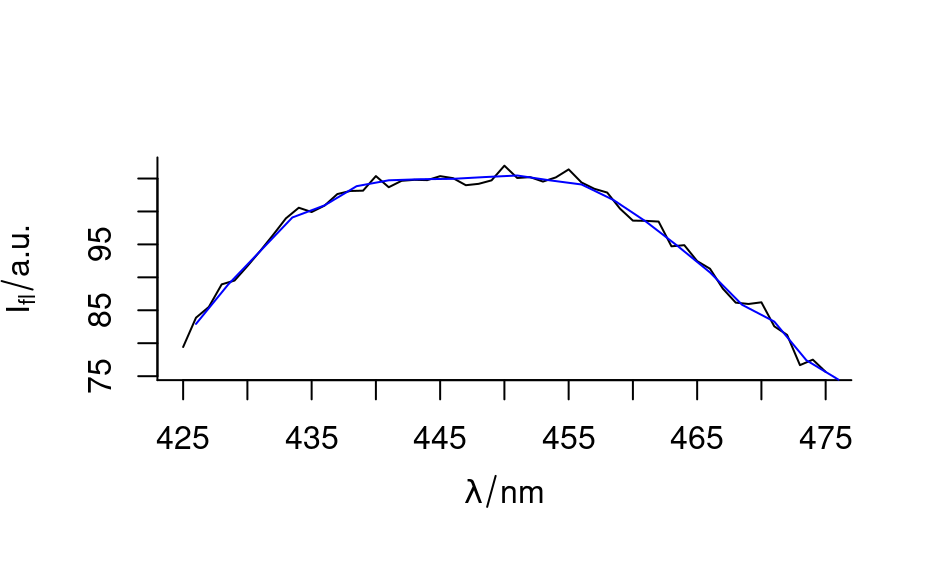These hyperSpec functions are deprecated and not maintained any more. You should not use these. Currently they are present due to back-compatibility reasons and will be removed in the next release of the package. Please, use the suggested alternative functions instead.
_____________
In order to reduce the spectral resolution and thus gain signal to noise ratio or to reduce the dimensionality of the spectral data set, the spectral resolution can be reduced.
spc.bin(spc, by = stop("reduction factor needed"), na.rm = TRUE, ...)Arguments
- spc
The
hyperSpecobject.- by
Reduction factor.
- na.rm
decides about the treatment of
NAs:if
FALSEor0, the binning is done usingna.rm = FALSE,if
TRUEor1, the binning is done usingna.rm = TRUE,if
2, the binning is done usingna.rm = FALSE, and resultingNAs are corrected withmean(..., na.rm = TRUE). See section "Details".
- ...
Ignored.
Value
A hyperSpec object with
ceiling(nwl(spc)/by) data points per spectrum.
Details
The mean of every by data points in the spectra is calculated.
Using na.rm = TRUE always takes about twice as long as na.rm = FALSE.
If the spectra matrix does not contain too many NAs, na.rm = 2 is
faster than na.rm = TRUE.
Examples
spc <- spc.bin(flu, 5)
#> Warning: Function 'spc.bin' is deprecated.
#> Use function 'spc_bin' instead.
#> Warning: Last data point averages only 1 point.
#> Warning: Function '.fix_spc_colnames' is deprecated.
plot(flu[1, , 425:475])
plot(spc[1, , 425:475], add = TRUE, col = "blue")
 nwl(flu)
#> [1] 181
nwl(spc)
#> [1] 37
nwl(flu)
#> [1] 181
nwl(spc)
#> [1] 37